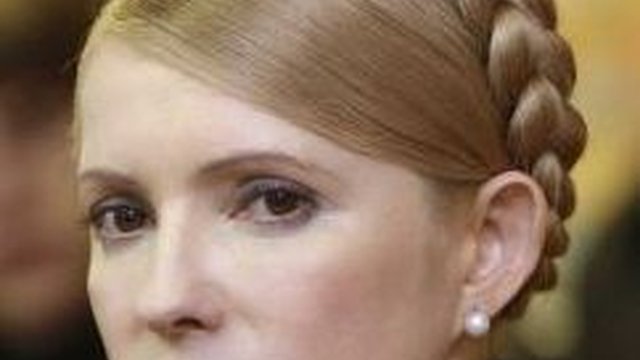Tymoshenko spends two years behind bars

Monday, August 5, marks two years since former Prime Minister of Ukraine, leader of the Batkivschyna Party Yulia Tymoshenko was put in detention.
Tymoshenko was arrested during her trial dealing with the conclusion of a 2009 gas supply contract with Russia on August 5, 2011.
The same day supporters and opponents of the ex-premier set up their tents on the central street of Kyiv outside Pechersky District Court which was hearing the gas case. The tents are still standing there.
On October 11, 2011, the Pechersky District Court in Kyiv sentenced Tymoshenko to seven years in prison for exceeding her authority when signing gas supply contracts with Russia in 2009. She has been serving her sentence at the Kachanivska correctional facility in Kharkiv since late December 2011.
Tymoshenko's defense repeatedly complained about health problems the ex-prime minister was experiencing while staying at a Kyiv detention center and demanded that she be examined by independent medical specialists, as she did not trust Ukrainian doctors.
On May 9, 2012, Tymoshenko was moved from the prison to Central Clinical Hospital No. 5 in Kharkiv. The procedures for the ex-premier's treatment in hospital have been selected by German doctors from the Charite Clinic.
Yevhenia Tymoshenko, the ex-premier's daughter, said on July 1, citing Charite doctors, that her mother was in a critical condition and needed urgent surgery. However, the Ukrainian authorities said there are no legal grounds for treatment of the ex-premier abroad.
Meanwhile, a court in Kharkiv is considering another criminal case against the ex-premier on the activities of the United Energy Systems of Ukraine (UESU) Corporation. Tymoshenko does not attend court sittings on the case. The hearing has been postponed several times due to Tymoshenko's bad health condition. The ex-premier refuses to participate in the hearing via a video conference.
Ukraine's Prosecutor General Viktor Pshonka announced on January 18, 2013, that the Prosecutor General's Office had completed an investigation into Scherban's murder and notified Tymoshenko that she was suspected, along with former Prime Minister of Ukraine Pavlo Lazarenko, of organizing the parliamentarian's killing. Pshonka said also that the case concerning Scherban's murder had been combined with the case on the embezzlement of budget money for settling the United Energy Systems of Ukraine's (UESU) debts to the Russian Defense Ministry.
Tymoshenko and Lazarenko categorically reject the accusations.
The ECHR ruled on April 30, 2013, that Tymoshenko's arrest violated three paragraphs of Article 5 (right to freedom and security) and also Article 18 (restriction of rights) of the European Convention.
On July 30, the ECHR judgment acquired final status.
Ukraine's Justice Ministry said on July 30 that Ukraine had fulfilled all of its obligations under the ECHR's ruling in Tymoshenko's complaint against infringements by the Ukrainian government of her rights.
"Today we can state that the ruling in the Tymoshenko vs. Ukraine case has been carried out in full and entails no further additional actions or obligations on the part of Ukraine. We can also declare the absence of any outstanding obligations under the ruling," the ministry said in a statement.
In response, Tymoshenko's defense team called the position of the Justice Ministry unfounded and filed a complaint to the Supreme Court of Ukraine asking it to review and reverse the ex-premier's verdict in the gas contract case.
Apart from the complaint against Tymoshenko's arrest, her defense team also filed a complaint with the ECHR against the violation of her right to a fair and public hearing due to political motives (Articles 6 and 18 of the European Convention on Human Rights), meaning her conviction in the 2009 gas supply case. The proceedings on the complaint were opened in October 2012. On July 15, 2013, the court started to consider the second complaint.
Some European politician and parties believe Tymoshenko's trial and conviction to be politically motivated. Brussels has named the release of the Ukrainian ex-premier as a condition for signing of the EU-Ukraine Association Agreement. Meanwhile, Tymoshenko has repeatedly said that the fate of the country cannot depend on the fate of one person.







